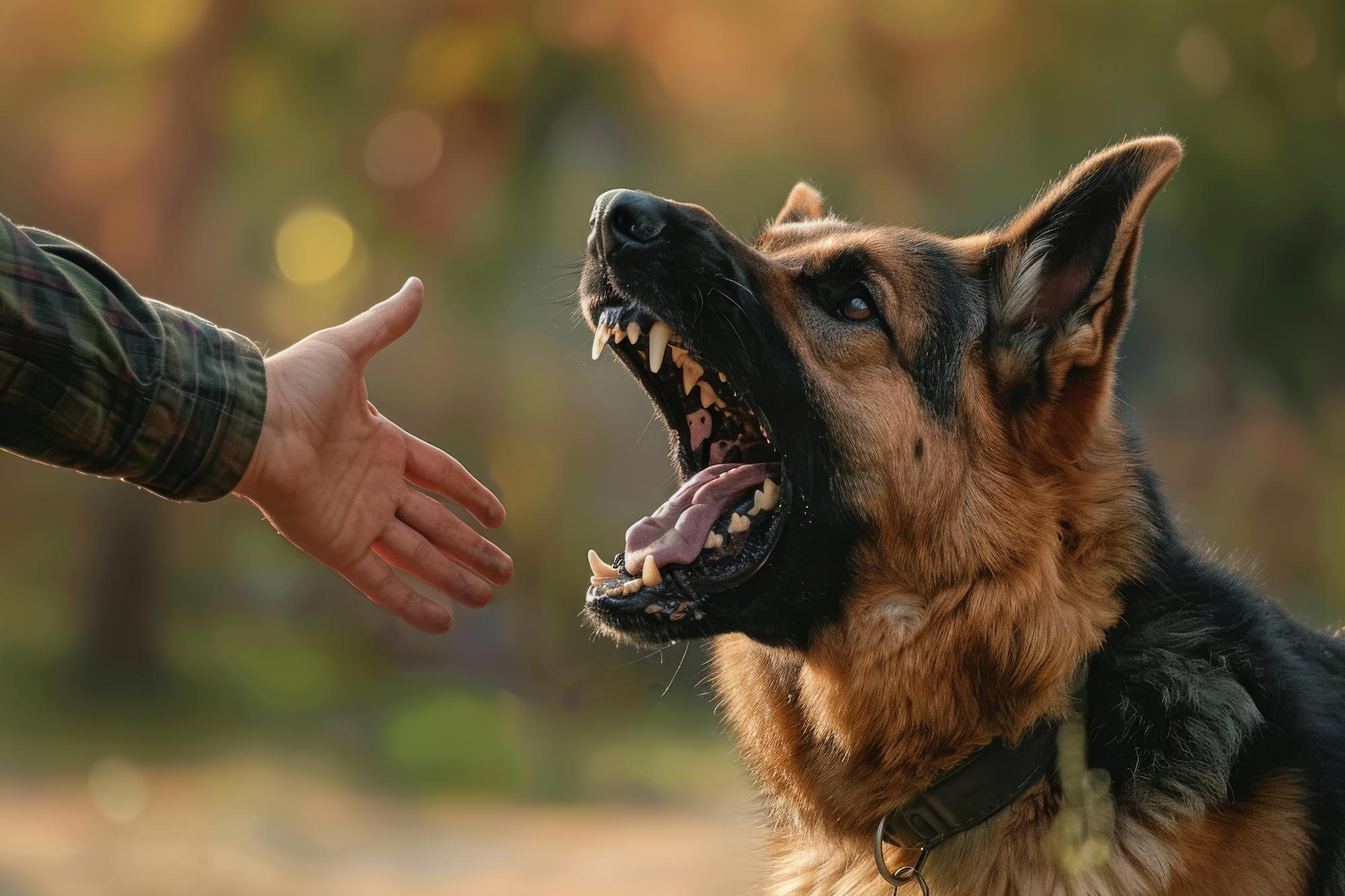Dog attacks can result in serious physical and emotional injury. For victims, being informed about their legal rights is essential, and for owners, being aware of their responsibilities can mean the difference between financial devastation and the right protection.
Dog bite laws in the United States differ by state and are categorized into two principal categories: liability for a dog bite based on a specific statute or, in some states, based on the dog owner’s knowledge of the dog’s viciousness, and strict liability without regard to the animal’s past behavior. If you’re struggling with the legal implications of a dog bite, speaking with an experienced dog bite attorney can have a huge impact on the success of your case.
In this comprehensive article, we will cover both of the main types of dog bite laws, how they work, how their application varies across states, and what both dog bite victims and dog owners should do to safeguard their rights and responsibilities.
The “One-Bite” Rule Explained
The “one-bite” rule comes from the common law. Under this rule, a dog owner may not be found strictly liable for the first bite unless there is evidence that the owner knew or should have known about the dg’s dangerous propensities. It means dogs get one free bite before liability kicks in.
This rule is not one-in-a-literally, of course, a dog gets a free bite kind of rule; it’s more subtle than that. The dog might have also exhibited previous aggression: it had growled, it had snapped, it lunged. If such a pattern is established, the owner can still be held accountable under the one-bite rule.
States that usually adhere to this rule are:
- Texas
- New York
- Virginia
- Arkansas
- Georgia
Victims in these states have to show that the owner knew about the dog’s violent past that’s a tough case to make without a trail of documented events. But circumstantial evidence could play a factor as well, such as the breed of the dog, previous complaints from neighbours, or witness testimony about the character of the dog.
The Explanation of Strict Liability Laws
Under strict liability statutes, a dog owner can be held liable for injuries inflicted by their dog, regardless of the dog’s previous viciousness and despite the owner’s own lack of notice or knowledge of the dog’s dangerous characteristics. The victim doesn’t have to show that the owner knew the dog was dangerous.
In order to win a strict liability claim, an injured party generally has to prove all of the following:
- The dog belonged to or was under the control of the defendant.
- The attack happened in a place open to the public or where the victim was legally allowed to be on private property.
- The bite caused an injury.
It’s not a matter of negligence in strict liability states. This is to protect the public and to promote control of one’s animals by the owner.
Some of the states that have followed strict liability are:
- California
- Florida
- Illinois
- New Jersey
- Michigan
In California, by contrast, Civil Code Section 3342 imposes strict liability on a dog owner whose dog bites a person, regardless of whether the dog has ever done so before. That is why it is so important to work with an experienced Los Angeles dog bite lawyer who knows the local laws and can guide you through one of these claims.
Major Differences between the Two Approaches
The principal difference between the one-bite rule and strict liability is the production of evidence necessary to support a claim.
One-bite state under the one-bite rule, the victim has to demonstrate that the dog’s owner knew or should have known the dog had a propensity for aggression or had bitten someone before. To be able to pursue a claim, you generally need to show an owner was aware of prior attacks or aggressive acts, which can be a challenging threshold to meet unless clear evidence is available. This is how states such as Texas, New York, Virginia, and Georgia do it.
The doctrine of strict liability, however, does not necessitate that the victim establish prior knowledge of aggression. The owner of a dog that bites someone is usually liable even if the dog has no history of violence. It is a more victim-friendly legal construct that has been adopted by states like California, Florida, Illinois and Michigan.
As for legal defences, owners in the one-bite rule states may claim that they were unaware that the dog was aggressive and that the victim provoked the dog or, even that the victim was trespassing. In strict liability states, these defences are confined primarily to trespass and provocation.
In the end, one-bite rules provide the most protection for dog owners, while strict liability rules give more legal clout to bite victims. It is important to understand which legal standard is applicable in your state to determine your rights and how strong your case is.
Combination or Hybrid Approaches & Modifications
Some states have hybrid models that include components of both rules. In these states, liability is mandated under strict liability based on specific facts (e.g., the dog was roaming unleashed in a public area), other than that evidence of previous knowledge must be established for general liability claims.
Examples include:
- Pennsylvania: Dog owners are strictly liable to medical expenses, but not to pain and suffering unless they knew the dog was dangerous.
- Colorado: Strict liability is only imposed if the dog inflicts serious bodily injury or death.
- Oregon: Courts can apply strict liability and negligence in different situations.
Because the word “hybrid” implies there is more than one vehicle, it is essential that you consult with a dog bite accident lawyer who is intimately familiar with how these hybrid laws are implemented in your local area.
Liability for Dog Owners
A dog owner who is held responsible under any of these rules may face severe penalties, such as:
- Pecuniary Damages: The cost of the victim’s medical bills, lost wages, and ordinary pain and suffering.
- Punitive Damages: If the abuse is particularly egregious or the attacker is a repeat offender, the court may also award punitive damages…
- Animal Control Orders: Restrictions such as muzzling or confinement may be applied by authorities.
- Euthanasia: If the victim has been attacked before by the same dog, or has suffered severe injuries, the dog can be euthanized by a court.
- Criminal Charges: Where the owner was reckless or failed to heed previous court order(s), criminal charges can be filed.
These dangers underscore the need to know local leash laws, enclosures and reporting of previous incidents. California dog owners may consult with a dog bite attorney in Los Angeles to evaluate their risk and to make sure they comply with the law.
Steps to Take After a Dog Attack
In you or someone you care about has been bitten by a dog, the following steps you can take immediately to help strengthen your case and safeguard your health:
- Get Medical Help: Treat injuries right away and call a doctor.
- Report the Incident: Make the local animal control or police aware.
- Find Out the Name of the Dog and Its Owner: Collect names, addresses and vaccination history.
- Collect Relevant Evidence: Photographs of the bite marks, the dog, and the scene.
- Get Witness Statements: Testimonials from others can help bolster your case.
- Talk to a Dog Bite Attorney: Immediate Action is Required. If you hire an attorney he can walk you through what you need to do and help you stick to deadlines.
In fact, evidence collection is crucial to obtaining the maximum compensation and for building a strong case, even in strict liability states.
Advice for Dog Owners to Avoid Liability
Preventative measures are the best course for dog owners to prevent legal problems:
- Training and socialization: Take your dog to obedience training and make sure he is properly socialized with both people and other dogs.
- Keep Your Pup Leashed: Always leash when in public, regardless of your dog’s behavioural history.
- Fence off your property: Ask everybody to remain fenced except when under supervision from their owners. Fencing your property and setting secure boundaries to avoid escapes and interaction with strangers.
- Follow Local Laws: Find out what the ordinances are in your area in regard to licensing, leash laws, and vaccinations.
- Post Warnings: Tell people a dog is on duty with appropriate signage.
- Be Insured: Homeowners’ insurance or pet-liability insurance can help defray legal costs in the event of an incident.
By taking these precautions you are not only saving the lives of others, but you can also reduce liability if an incident does occur.
Conclusion
Understanding a state’s dog-bite laws comes down to whether a state follows a one-bite rule, a strict-liability law or a combination of the two. These legal formats conventionally affect the courses of action for the victim options and obligations for the dog’s owner.
If you are a victim, painting a portion of the pie justice begins with being prepared to and properly documenting when you take legal action. Dog owners who want to mitigate liability must take responsible action and abide by state and local law.
If you’re the victim of a dog bite or a pet owner in need of help, a dog bite lawyer can provide you with everything you need to navigate the process. Our skilled Los Angeles dog bite lawyer at Mesriani Law Group has decades of experience in claiming fair compensation for victims of animal attacks and animal bites, having handled all types of accidents and personal injury incidents.








